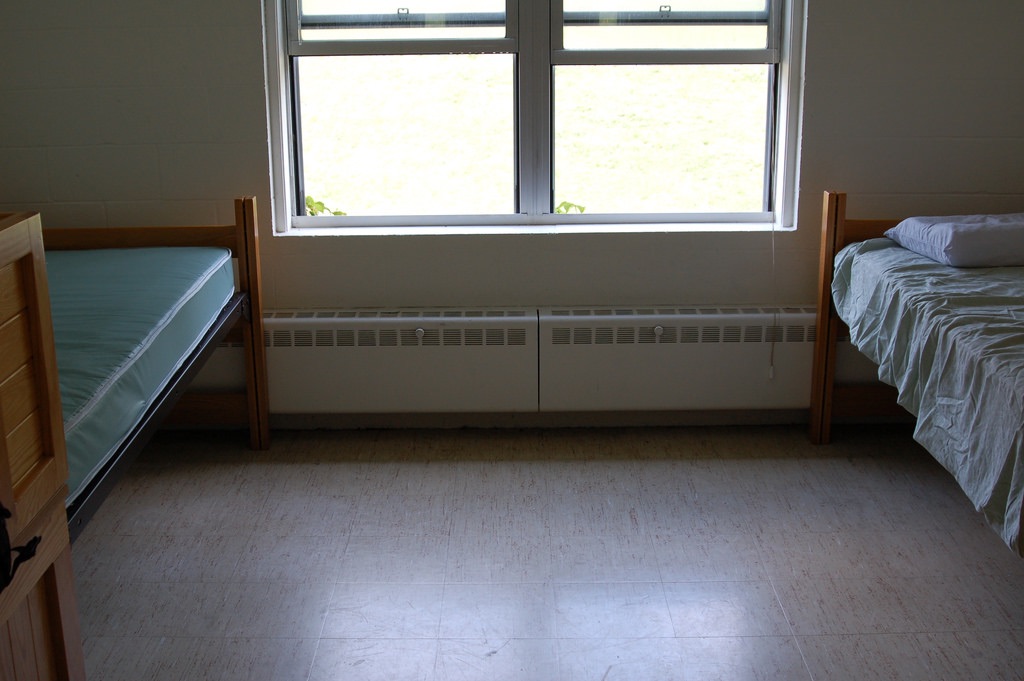Photo courtesy of flickr
BRIDGET EARLY | OPINION COLUMNIST | bfearly@butler.edu
On the surface, dealing with 2 a.m. phone calls, the tedious pacing of identical hallways and an unending litany of planning and scheduling seems as dull and irritating a job as could possibly be conceived. According to the Residential Assistants here at Butler, however, Residential Life in Ross and Residential College is a dynamic and constantly entertaining source of employment — and the free housing bonus doesn’t hurt, either.
Residential Assistants, known as RAs, serve as full-time staff in the residence halls on campus. The job requires that RAs blend various identities to succeed on the job. However, toeing the line between friend, older sibling and authority figure is no easy feat and learning to work with people from innumerable walks of life is an added difficulty.
Each wing or unit in the residence halls is assigned an RA, who is given dozens of students to look after, care for and discipline when necessary. Their primary goals are to ensure that residents are learning to be healthy and happy, live respectfully, exceed academically and enjoy life at Butler to its fullest.
Michelle Jugovich, a first-year harp performance major, said she appreciates having RAs around.
“By keeping us physically and socially responsible, they impact our academic lives as well,” Jugovich said. “When we’re healthy and happy, academics are much easier for us to handle.”
Balancing academics, personal life and other extracurricular commitments can be hard, Malin Peterson, Ross RA and sophomore secondary education major, said. But she said it’s worth it for the interactions she has with new groups of students.
“Shaping the paths of first years was something I really wanted to do,” Peterson said, “and my goal for my residents is for them to be successful, happy, better people when they walk out of my unit at the end of the year.”
This is a common motive for working as an RA.
As Ashlynn Edwards, junior philosophy major and Resco RA, said, “The obvious perks are of course the free housing and meal plan.” But, she was also quick to emphasize that every RA on campus is doing something they love.
“I think it’s wonderful because you have the opportunity to help so many people to grow and be successful,” Edwards said.
RAs are on the front lines on weekends during social hours, dealing with students who get into shenanigans of all kinds and often caring for the ones who get in over their heads.
The controversy with RAs lies in their status as authority figures over their fellow students, many of whom are only a year or two younger than the RAs themselves. Many first years view RAs as a form of housing police who serve only to make their lives more difficult.
Junior biochemistry major Ethan Kitt recognizes the tenuous situation he and his fellows face as Ross RAs when balancing their roles as both students and authority figures.
“We as a staff have to represent the face of the university, which is really hard at times because we have to err on the side of authority in the building,” Kitt said. “It’s tough because it can put pressure on our relationships with residents when we’re just doing our jobs.”
Despite the fact that RAs serve to protect their residents and support them when they get into trouble, first years may begin to distrust them when RAs fulfil the other half of their duties- reporting problems in the dorms.
Colton Junod, a senior Resco RA and biology pre-medicine major, sees this mentality as a key difficulty with the position.
“I think that sometimes other students view us as the police, which really isn’t our primary goal,” Junod said. “We are just trying our best to make sure everyone is happy, healthy and safe.”
RAs don’t enjoy the process of reporting problems and hate the way it ostracizes them from first-years and from other Butler students, who sometimes treat RAs differently when they identify them.
Despite the unenjoyable parts of the job, however, RAs are crucial to the success of the first year community because they remove potential dangers and allow first years to grow, bond and form relationships in a safe and homey environment.
Joey Calvillo, the residence life coordinator at ResCo, said that RAs serve as the backbone and support system for residents, who are learning to become independent adults and benefit greatly from the aid of experienced students.
“We rely heavily on the RAs and their ability to build positive relationships and communities within their specific units,” he said. “The RAs work to ensure the safety of our students. They host programs to promote healthy and smart decision-making skills and they are an advocate and a support system when students come to them.”
From academics to social lives, RAs are looking out for their residents through thick and thin — and through strange encounters ranging from dozens of smashed exit signs to full-sized trees in communal showers. The next time you’ve got questions, take them up with the nearest RA — they’ve heard everything.



